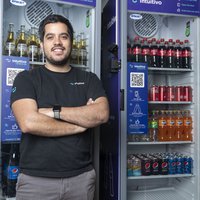Artificial intelligence & robotics
Eunwoo Song
Introducing a speaker-adaptive training method for the neural TTS system in Korea.

Global
Joelle Mbatchou
Analyzing data quicker and cheaper.

Latin America
Mayra Lázaro
Uses AI to empower young people and reducing school dropouts.

China
Guohao Dai
He proposed innovative software-hardware co-optimization methods for sparse computing, significantly improving the computational efficiency and energy performance of AGI while effectively addressing the computing power challenge in large language models.

Latin America
José Benítez
Uses artificial intelligence and computer vision to turn display refrigerators into autonomous vending machines.
